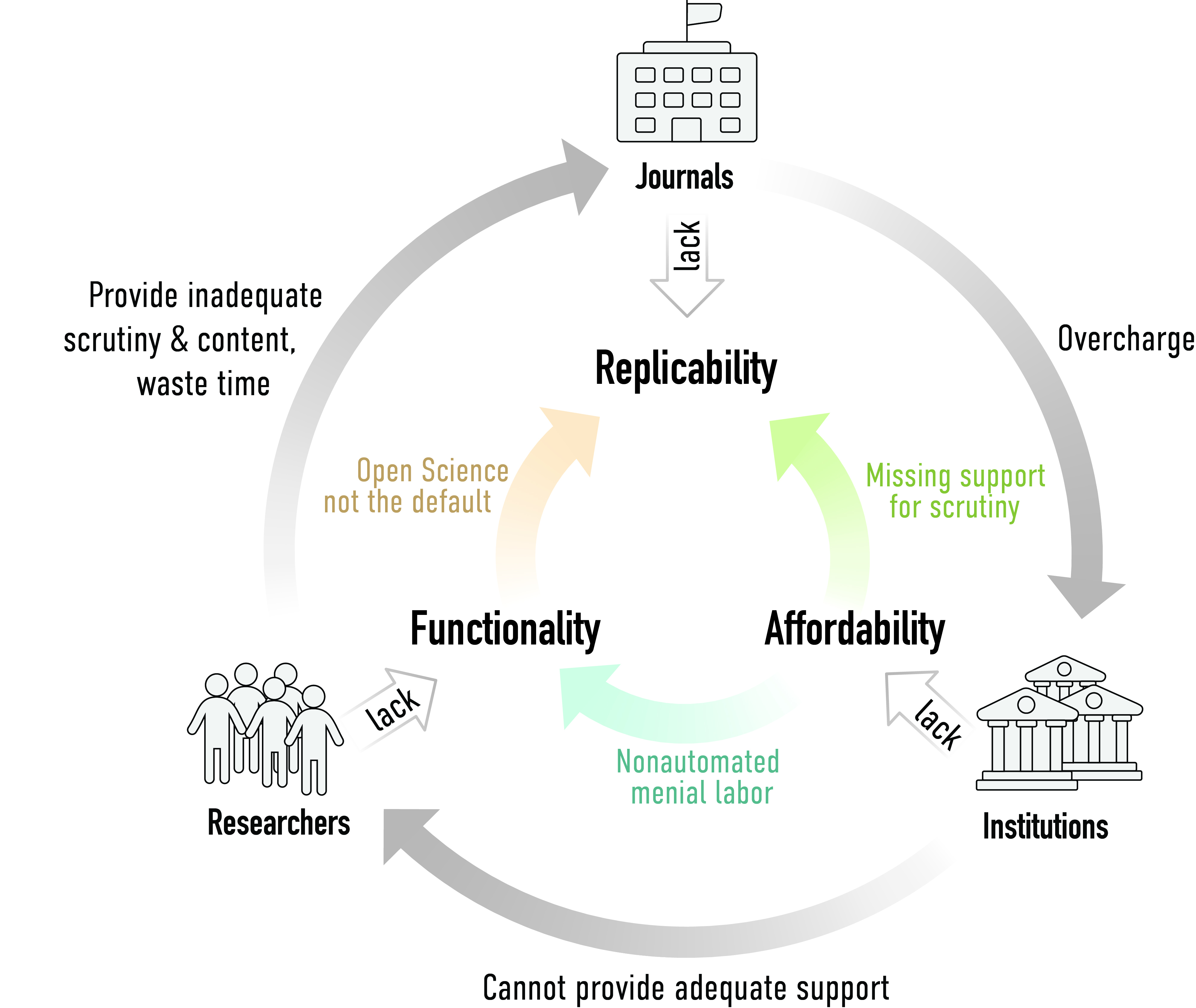The academic journal publishing system sure feels all too often a bit like a sinking boat:
- we have a reproducibility leak
- an affordability leak
- a functionality leak
- a data leak
- a code leak
- an interoperability leak
- a discoverability leak
- a peer-review leak
- a long-term preservation leak
- a link rot leak
- an evaluation/assessment leak
- a data visualization leak
- …
- …
- …
- and even a tiny access leak still remains even after 30 years of trying to fix it.
While some people are trying to keep the boat afloat, most are just happy if they stay dry. Without taking the boat on land to fix it, the leaks just keep springing up, making it harder and harder to bail the water out.

A platform solution (i.e., what people have called a “Global Open Archive” in 2010 or what is now often called a “Next Generation Repository” and where one current implementation could be, e.g., Open Research Central) that would address all of these problems, would feel a little bit like a fighter jet, compared to that sinking boat:

Alas, there are many academics who say that we can convert our sinking boat into the jet just by bailing faster, tackling one leak at a time, with some plywood, duct tape, only the wet staff and without ever needing to take the boat out of the water. They may be correct, but I, for one, am not wasting my time on such odds.
Making matters worse, most academics are precariously employed (or their dependent co-workers are), leaving the leak-fixing and jet-building to the privileged few:

Right now, it looks as if the boat needs to sink completely before we will ever start working on the jet.














Great! I can now think of rejecting a review invitation as dumping a bucket of seawater on the deck! It’s always helpful to attach images to actions 🙂
🙂